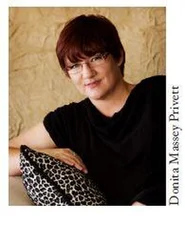Frank Tallis - Death And The Maiden
Здесь есть возможность читать онлайн «Frank Tallis - Death And The Maiden» весь текст электронной книги совершенно бесплатно (целиком полную версию без сокращений). В некоторых случаях можно слушать аудио, скачать через торрент в формате fb2 и присутствует краткое содержание. Жанр: Исторический детектив, на английском языке. Описание произведения, (предисловие) а так же отзывы посетителей доступны на портале библиотеки ЛибКат.
- Название:Death And The Maiden
- Автор:
- Жанр:
- Год:неизвестен
- ISBN:нет данных
- Рейтинг книги:5 / 5. Голосов: 1
-
Избранное:Добавить в избранное
- Отзывы:
-
Ваша оценка:
- 100
- 1
- 2
- 3
- 4
- 5
Death And The Maiden: краткое содержание, описание и аннотация
Предлагаем к чтению аннотацию, описание, краткое содержание или предисловие (зависит от того, что написал сам автор книги «Death And The Maiden»). Если вы не нашли необходимую информацию о книге — напишите в комментариях, мы постараемся отыскать её.
Death And The Maiden — читать онлайн бесплатно полную книгу (весь текст) целиком
Ниже представлен текст книги, разбитый по страницам. Система сохранения места последней прочитанной страницы, позволяет с удобством читать онлайн бесплатно книгу «Death And The Maiden», без необходимости каждый раз заново искать на чём Вы остановились. Поставьте закладку, и сможете в любой момент перейти на страницу, на которой закончили чтение.
Интервал:
Закладка:
Frau Eberhardt paused before posing some interesting questions: ‘Is this true? Can Professor Krafft-Ebing really be correct? Is the female of the species sexually anaesthetic? And if she is not, is it really the case that her untrammelled lust and degeneracy would bring about the end of civilised society?’
A smatter of restrained laughter travelled around the hall.
‘I will address these issues in turn.’
Frau Eberhardt put the volume down and picked up a sheet of paper. ‘I have here the results of a study undertaken in the United States of America, some years ago now, by Frau Doctor Clelia Duel Mosher. Her survey shows that one-fifth of married women achieve a venereal orgasm every time they engage in intercourse, and another fifth on most occasions. Her respondents described the experience as ecstatic or delightful . One of them expressed the simple sentiment that she would have hated to have omitted the experience . Are these the responses of sexually anaesthetic women? The conjugal right to satisfactory consummation,’ Frau Eberhardt stabbed the air with her finger for emphasis, ‘is as much the right of women as it is of men. Economic equality and sexual equality. Nothing less will be acceptable!’
At this juncture a soberly dressed middle-aged woman and her daughter stood up. The daughter had blue eyes and her blonde hair was coiled in braids over her ears. She wore a long dark skirt, a white blouse, a rose-embroidered waistcoat and black suede shoes with silver buckles. She looked like a figure from a traditional German fairy story. In her hand she carried the white carnation of Mayor Lueger’s Christian Social Party.
‘That is enough!’ cried the older woman. ‘What you are saying is filth — gutter talk — and doesn’t help women at all. There is nothing wrong with wanting to be cared for by a man, a good working man who is willing to labour and support his wife and children. It is unnatural to think otherwise.’
‘Sit down,’ shouted the young woman opposite Amelia, shaking her copy of Mantegazza in the air. ‘Let Frau Eberhardt speak!’
‘A woman’s place is in the home,’ continued the proud housewife, scowling at her critic. ‘That is her proper place. We must raise our daughters to be selfless, obedient, and willing to make sacrifices. What is motherhood, if not a sacrifice? What will become of our people if we do not fulfil our duty to husband and country? You …’ Her face reddened as she brought her mind to bear on the problem of formulating an insult. The result was a single word: ‘ Intellectual! ’ She turned to her daughter. ‘Come, Gretl.’
The two women stepped into the aisle and walked briskly towards the exit. Before slamming the door, the older woman shouted back at the stage.
‘There are laws about this sort of thing. What you are saying is obscene. They will hear about this at the town hall!’
Frau Eberhardt smiled at her stunned audience.
‘Well,’ she said finally. ‘No one can deny that there is much to do.’
12
Felix Schneider was a diminutive clean-shaven man, with wavy dark brown hair that had begun to turn silver above his ears. He spoke with a lisp, gesticulated excessively, and his cigarettes produced a distinctive fruity aroma which blended with the floral registers of his cologne. His apartment, situated on the top floor of a building in the sixth district, was clean, tidy and tastefully decorated.
Rheinhardt and Liebermann had found Schneider entertaining a young man of dandyish appearance. Rather awkwardly, Schneider explained that his guest was about to leave and immediately hurried the youth to the door. When Rheinhardt had asked Schneider who the young man was, he had answered ‘just a friend.’ But it was obvious to Liebermann, from Schneider’s anxious demeanour, that the guest was an intimate acquaintance, and that the nature of this ‘intimacy’ was very probably the cause of Schneider’s discomfort. Rheinhardt had not wasted time probing Schneider’s private affairs and the subject of Ida Rosenkrantz’s death was raised without preamble.
After the customary declarations of horror and disbelief, Schneider talked spontaneously about his late ‘mistress’ with emotion. Indeed, while reminiscing about their years spent together in Prague he became distraught and began to cry.
‘I am sorry for your loss,’ said Rheinhardt, extending a hand and resting it on Schneider’s forearm. ‘Please accept my condolences.’
‘Thank you,’ said the dresser, pathetically grateful for the inspector’s sympathy.
Schneider looked drawn and tired, undernourished. He lit another cigarette, and after a short pause seemed to draw sustenance from the tobacco. Words flowed in an unbroken stream of fond recollections. He spoke of his great admiration for Rosenkrantz, the brightness of her smile, the magnitude of her talent, her beauty and good humour. He spoke of theatrical triumphs and the glowing reviews that had followed.
Although Schneider’s official title was relatively modest — personal dresser to court opera singer Fraulein Ida Rosenkrantz — it was apparent that, during the course of their association, he had been called upon to perform a variety of functions. He had managed her financial affairs (she was famously irresponsible with money), reminded her of coming appointments, smoothed the way for the repair of friendships spoiled by indiscretion, run errands, schooled her in the important matter of opera house politics, and supplied her with safety pins when the fastenings of her dresses broke (usually just before a key stage entrance). And in the privacy of the diva’s dressing room he was obliged to hear her confidences and offer her the consolation of a brotherly shoulder to shed tears on. All very unusual for a relationship between a singer and her wardrobe assistant.
‘I don’t think it was an accident, Inspector,’ said Schneider. ‘I think she took her own life.’
‘Why do you say that?’
‘She was not herself … unhappy.’
‘Doctor Engelberg, her general practitioner, told me that he saw Fraulein Rosenkrantz a few weeks ago and she was in excellent spirits.’
‘Doctors …’ said Schneider, shaking his head and demonstrating his low opinion of the profession with a grimace. Then, remembering that he was in the presence of a medical man, he glanced at Liebermann and added, ‘My apologies, Herr Doctor, I am upset, you understand.’
Liebermann excused him with a magnanimous gesture.
‘What did you mean by that?’ Rheinhardt imitated Schneider’s tone: ‘ Doctors …’
‘She was unhappy about lots of things. I don’t think they were able to help her very much. ‘
Schneider had been voluble, talking with natural ease, but now, quite suddenly, he became reticent. He looked across the room at a circular table covered with a purple cloth. A candle flame flickered above three picture frames. The first contained a print of the Virgin Mary, the second a sepia image of an old woman, presumably Schneider’s deceased mother, and the third a photograph of Ida Rosenkrantz. The singer was dressed in a medieval costume and had been captured in a melodramatic pose.
‘Herr Schneider,’ said Rheinhardt. ‘You were saying …’
The dresser came out of his reverie.
‘She was never right — in her mind. Well, at least not since this spring.’
‘We know that she saw a psychiatrist, a man called Professor Saminsky.’
‘She was a consummate actress. It was easy for her to convince her doctor and friends that she was in excellent spirits. But she wasn’t.’
‘Why? What happened?’ asked Liebermann.
Schneider sighed and stubbed out his cigarette.
Читать дальшеИнтервал:
Закладка:
Похожие книги на «Death And The Maiden»
Представляем Вашему вниманию похожие книги на «Death And The Maiden» списком для выбора. Мы отобрали схожую по названию и смыслу литературу в надежде предоставить читателям больше вариантов отыскать новые, интересные, ещё непрочитанные произведения.
Обсуждение, отзывы о книге «Death And The Maiden» и просто собственные мнения читателей. Оставьте ваши комментарии, напишите, что Вы думаете о произведении, его смысле или главных героях. Укажите что конкретно понравилось, а что нет, и почему Вы так считаете.












